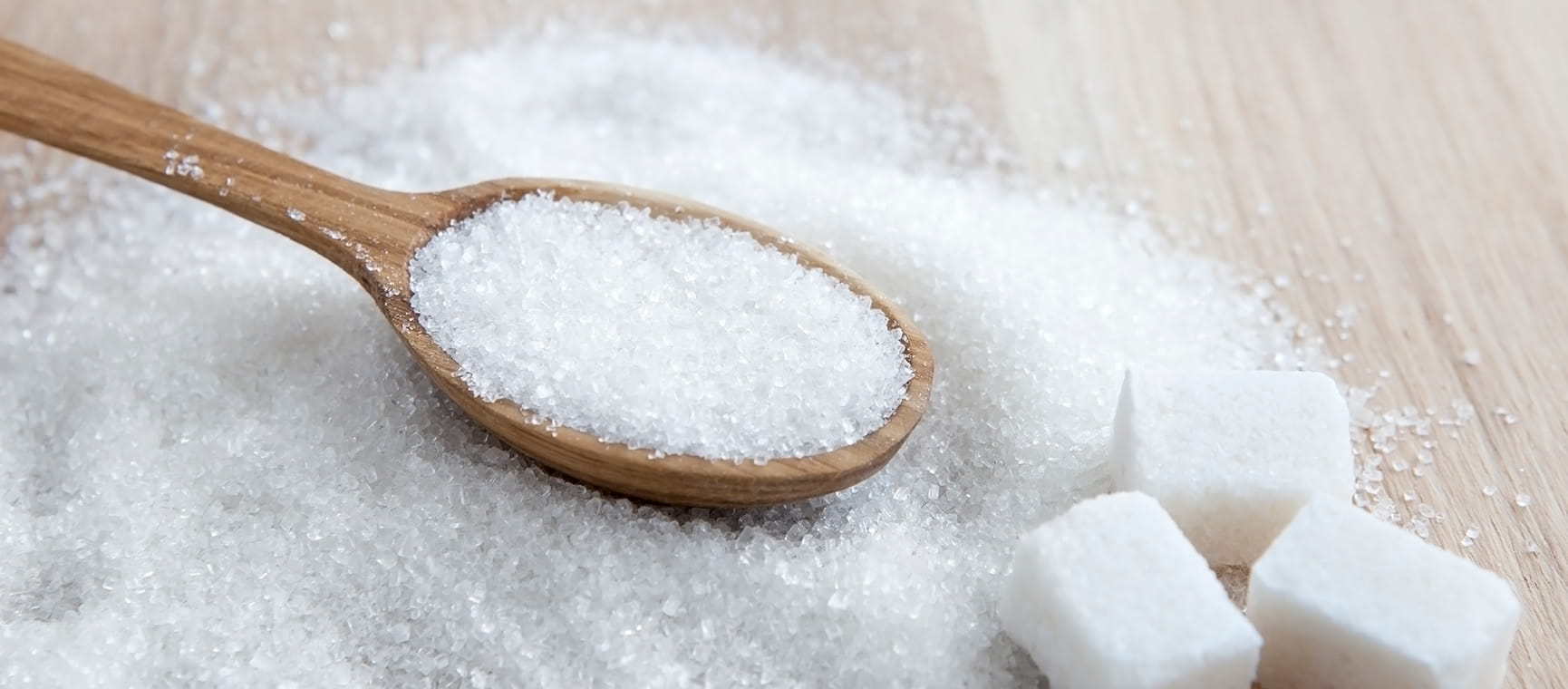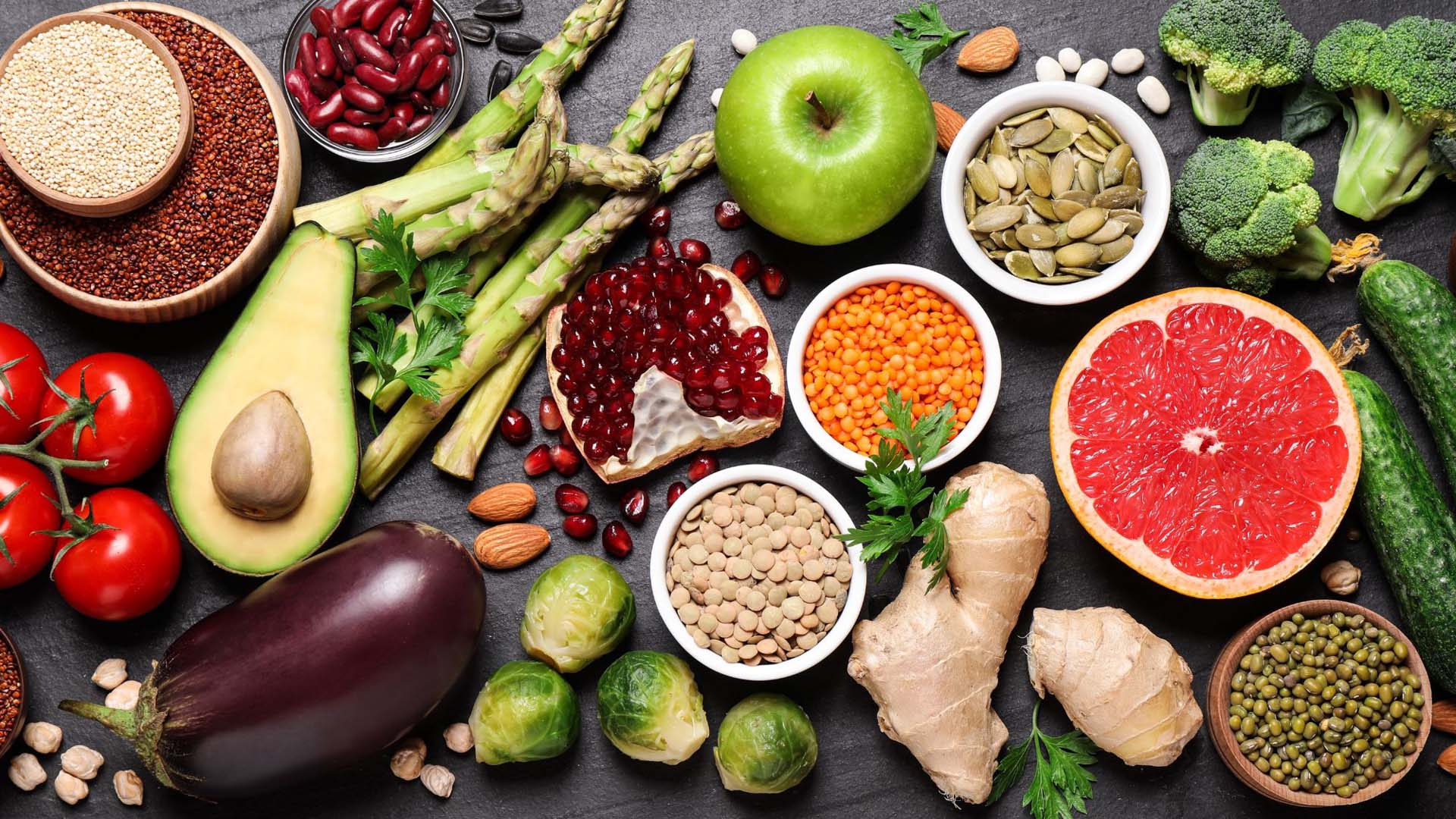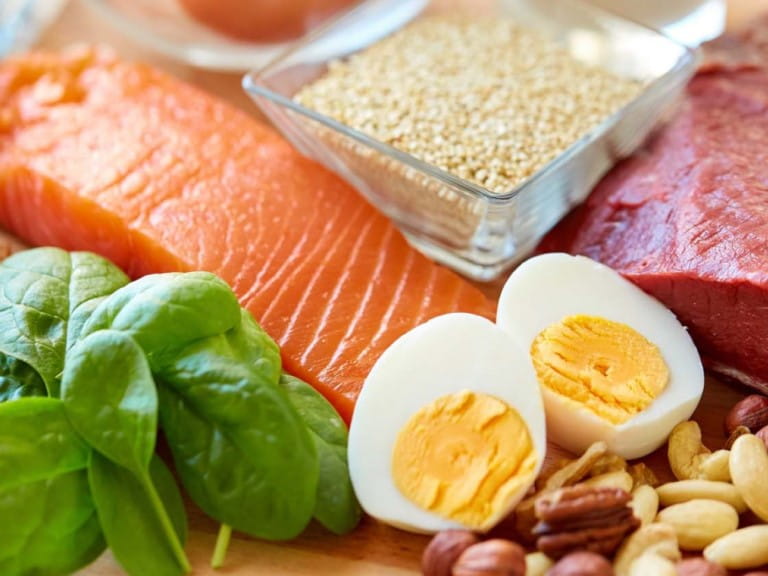Sugar: why you don't need to give it up for your health
Expert nutritionist Alex Allan has the facts about how bad sugar actually is for us, and why we don't need to give it up completely for our health.

Expert nutritionist Alex Allan has the facts about how bad sugar actually is for us, and why we don't need to give it up completely for our health.

Over the past few years, sugar has been singled out as one of the main culprits in the rise in obesity, type-2 diabetes and other chronic health conditions.
It has been labelled addictive, inflammatory, and even, in some instances, poisonous. Many people have taken this to mean that cutting out all sugar is the secret to good health. But is that really true?
Sugar, in one form or another, has been part of the human diet for thousands of years. Naturally occurring sugars are found in fruits, vegetables, dairy products and even wholegrains.
In these foods, sugar comes nicely packaged up with fibre, vitamins, minerals and phytonutrients that help regulate how it is absorbed and metabolised.
For example, the absorption of fructose in a whole apple is slowed down by fibre, and accompanied by antioxidants and polyphenols, which offer additional health benefits.

The history of sugar tells us a lot about why it has become so problematic today. Small amounts of natural sweeteners like honey and fruit have long been part of human diets.
But with the expansion of colonial trade in the 17th and 18th centuries, sugar became more widely available and affordable. By the 19th century, technological advances in refining allowed for mass production of white sugar, stripping away the minerals found in raw cane and beet.
Just as roller milling transformed bread, so industrial refining transformed sugar from a rare luxury into a cheap everyday staple, paving the way for its dominance in modern processed foods.
The main problem lies in free sugars, which are the kind that are added to food and drinks, or released during food processing such as juicing or refining. This type of sugar hits the bloodstream rapidly and can cause sharp glucose spikes, along with the consequent energy crashes.
Over time, diets high in free sugars are strongly linked with weight gain, insulin resistance, type-2 diabetes, cardiovascular disease, fatty liver and dental decay.
The World Health Organisation recommends keeping free sugars to less than 10% of daily calories – ideally closer to 5% – which is about 25–50 grams (6–12 teaspoons) per day. But it’s worth noting that a single can of cola contains around 35 grams.
The rise of industrial food processing has dramatically changed the way we consume sugar.
In the mid-20th century, the food industry discovered that adding sugar not only improved flavour but also increased shelf life and encouraged over-eating – great for selling more products.
Today, sugar is hidden in countless products, from cereals and sauces to ready meals and breads – they even put sugar in gravy! When combined with fat, salt and flavourings, it creates “hyperpalatable” foods that activate brain reward pathways, encouraging cravings and frequent snacking.
This shift towards ultra-processed foods (UPFs) is now considered one of the biggest drivers of modern diet-related disease. Numerous studies in recent years have linked high UPF consumption with obesity, type-2 diabetes, cardiovascular disease and depression.

Certain groups need to be especially cautious. People with type-2 diabetes, pre-diabetes and insulin resistance must carefully manage their intake of free sugars to prevent destabilising their blood sugar.
Those with polycystic ovary syndrome (PCOS) or fatty liver disease also benefit from minimising added sugars. And for dental health, frequent exposure to sugary snacks and drinks is one of the strongest risk factors for tooth decay.
There is also emerging evidence around the role of excess sugar in inflammation and autoimmune conditions.
Diets high in free sugars may increase markers of systemic inflammation, such as C-reactive protein, and can negatively influence the gut microbiome.
In some people with autoimmune conditions, this inflammatory effect may exacerbate symptoms. Research has suggested that a high sugar intake could worsen outcomes in conditions such as rheumatoid arthritis or inflammatory bowel disease, although results vary and more studies are needed.
While sugar is unlikely to be the sole driver of autoimmunity, reducing free sugars and ultra-processed foods may help to lower your overall inflammatory load, which can be particularly valuable for those with underlying autoimmune conditions.
That said, not everyone needs to avoid sugar completely. Naturally occurring sugars in whole fruits, vegetables and dairy are not linked with negative health outcomes, and these foods provide important nutrients.
What matters is the context – a sweet treat after a balanced meal is very different from sipping sugary drinks throughout the day. Pairing carbohydrate-rich foods with protein or healthy fats (for example, yoghurt with berries and nuts, or oatcakes with hummus) slows glucose absorption and helps balance blood sugar.
So, what’s the truth about sugar? Like bread, the answer is nuanced. Sugar itself isn’t the sole villain – it’s the modern excess of free sugars and ultra-processed foods that causes harm. For most people, focusing on quality and moderation is the best strategy.
Whole, minimally processed foods with natural sugars can be part of a healthy diet, while free sugars should be kept to a sensible minimum. Listen to your body and pay attention to how different foods may affect your energy levels. Always seek professional guidance if you’re unsure.
Good health comes from balance and consistency, not from demonising a single nutrient.
Alex Allan is a Registered Nutritional Therapist, Certified NLP Practitioner and Certified Health Coach.
With more than 20 years experience, her nutritional advice has been featured on Channel 4, national newspapers and magazines.


Get 3 months free, plus a £125 Totally Rewards Wellness Gift Card when you start a new policy by the end of 19 February 2026. T&Cs apply.
Underwritten by Bupa Insurance Limited.

Your chance to explore Ireland on board Spirit of Discovery on a cruise worth £4,317pp.

Expert nutritionists break down the most important foods to eat in each decade as we get older.

We reveal the 7 best tinned foods to supercharge your health while saving you time and money.

From ketchup to mayo – how healthy are your sauces? We find out the pitfalls and surprising benefits of our favourite condiments.

Could honey be the sweetest way to supercharge your health this year? Our experts explain the benefits and which to buy.

Our expert guide to the common foods you shouldn't mix with prescription drugs.

Experts reveal whether chilled supermarket soups are worth the extra cost and if some flavours are better for you than others.

Looking after your gut health could be one of the biggest things that you can do for your overall health. Here are the best foods to keep your gut happy.

The foods that could help you live longer and protect against chronic illness.



Everything you need to know about protein, from how it benefits your body to the best high-protein foods – and how much you really need.